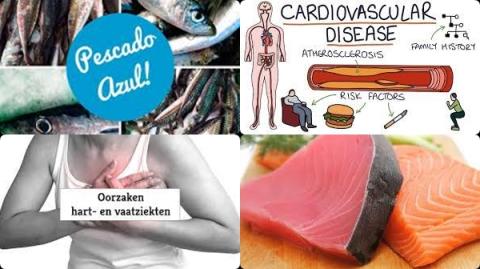
Objectives:
Cohort studies report inconsistent associations between fish consumption, a major source of long-chain ω-3 fatty acids and risk of cardiovascular disease (CVD) and mortality. Whether the associations vary between those with and those without vascular disease is unknown. Therefore, this review article has been conducted.
Do the associations of fish consumption with risk of cardiovascular disease or of mortality differ between individuals with and individuals without vascular disease?
Study design:
This review article included 4 cohort studies from 58 countries with 191,558 participants with a mean (SD) age of 54.1 (8.0) years and 91,666 (47.9%) were male.
Results and conclusions:
The investigators found during 9.1 years of follow-up in PURE, compared with little or no fish intake (≤50 g/mo), an intake of 350 g/wk or more was not associated with risk of major cardiovascular disease [HR = 0.95, 95% CI = 0.86 to 1.04] or total mortality [HR = 0.96, 95% CI = 0.88 to 1.05].
Not associated because HR of 1 was found in the 95% CI of 0.86 to 1.04. HR of 1 means no risk/association.
The investigators found, by contrast, in the 3 cohorts of patients with vascular disease, the HR for risk of major cardiovascular disease [HR = 0.84, 95% CI = 0.73 to 0.96] and total mortality [HR = 0.82, 95% CI = 0.74 to 0.91] was lowest with dietary intakes of at least 175 g/wk (or approximately 2 servings/wk) compared with 50 g/mo or lower, with no further apparent decrease in HR with consumption of 350 g/wk or higher.
The investigators found fish with higher amounts of ω-3 fatty acids (also called oily fish) were strongly associated with a lower risk of cardiovascular disease [HR = 0.94, 95% CI = 0.92 to 0.97 per 5-g increment of intake], whereas other fish were neutral (collected in 1 cohort of patients with vascular disease).
The association between fish intake and each outcome varied by cardiovascular disease status, with a lower risk found among patients with vascular disease but not in general populations [for major cardiovascular disease: I2 = 82.6%, p = 0.02 and for death: I2 = 90.8%, p = 0.001].
The investigators concluded that fish intake of 175-350g weekly is associated with lower risk of major cardiovascular disease and mortality among patients with prior cardiovascular disease but not in general populations. The consumption of fish (especially oily fish) should be evaluated in randomized trials of clinical outcomes among people with vascular disease.
Original title:
Associations of Fish Consumption With Risk of Cardiovascular Disease and Mortality Among Individuals With or Without Vascular Disease From 58 Countries by Mohan D, Mente A, […], Yusuf S.
Link:
https://pubmed.ncbi.nlm.nih.gov/33683310/
Additional information of El Mondo:
Find more information/studies on fish consumption and cardiovascular disease right here.